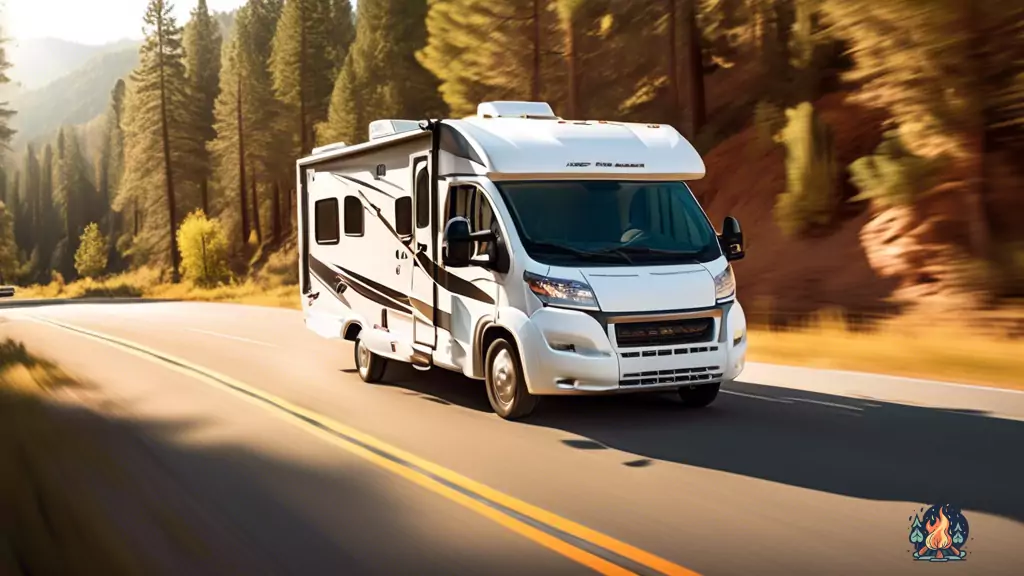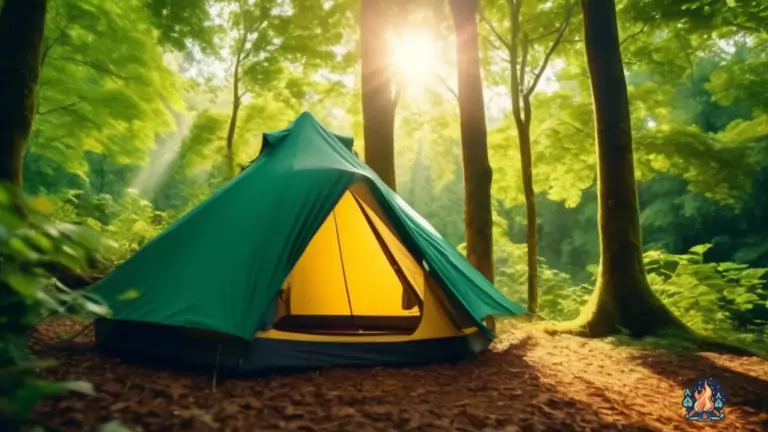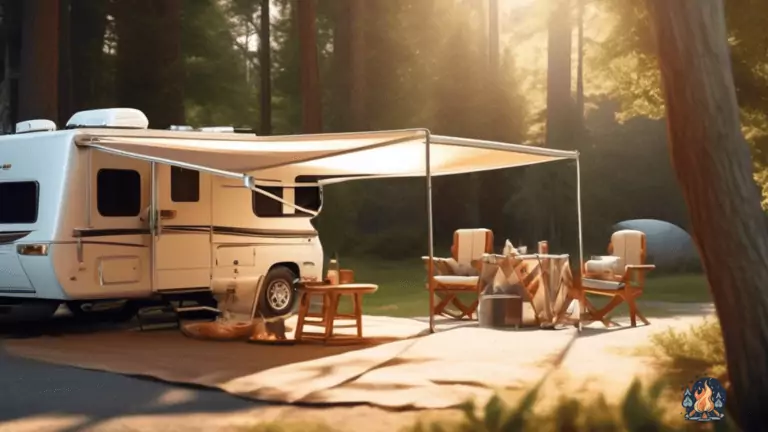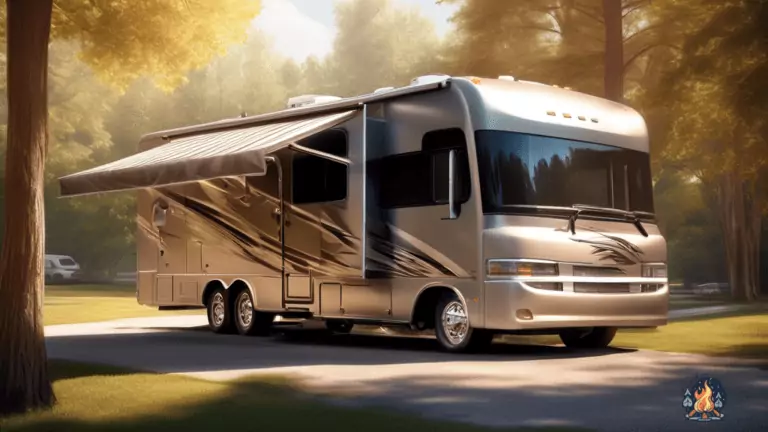Understanding RV Driving License Requirements For Beginners
by Kevin Fairbanks • Updated: January 22, 2024
Discover the must-know RV driving license requirements for beginners. Don’t miss out on your dream RV adventure – click here to learn more and hit the road with confidence!

So, you’ve decided to embark on the exciting and adventurous journey of RV life. Congratulations! But before you hit the open road and start living that nomadic dream, there’s one important thing you need to take care of – getting your RV driving license.
Now, you might be thinking, "Wait, I need a license just to drive an RV? Isn’t it just like driving a big car?" Well, my friend, not exactly. RVs come in all shapes and sizes, from small camper vans to massive motorhomes, and each type has its own set of rules and regulations when it comes to driving them.
First things first, let’s talk about the different types of RVs out there. You’ve got your Class A motorhomes, which are the big boys of the RV world, often resembling a luxurious bus. Then there are Class B motorhomes, which are more compact and built on a van chassis. And lastly, we have Class C motorhomes, which are a mix between Class A and Class B, with a distinctive cab-over bunk.
Each type requires a different kind of license, so it’s important to know which one you’ll be driving before you dive into the licensing process. Don’t worry, though, we’ll walk you through it all step by step.
So buckle up, put on your driving cap (or helmet, if that’s your style), and let’s get started on your RV driving license journey!
Key Takeaways
- There are three types of RVs: Class A, Class B, and Class C, each with different features and sizes.
- RV license classifications are based on the weight and type of the motorhome, with Class A for heavy motorhomes, Class B for lighter motorhomes, and Class C for motorhomes built on a van or truck chassis.
- Obtaining a non-commercial RV license requires gathering necessary documents, filling out an application, and paying a fee, while obtaining a commercial RV license requires passing a written exam and demonstrating driving skills.
- To pass the RV license exam, it is important to study the rules of the road and get plenty of practice with an RV. Making mistakes and laughing at oneself is part of the learning process, and studying hard is crucial for acing the exam.
Different Types of RVs
Now that you’ve got the basics down, let’s dive into the exciting world of different types of RVs! Trust me, it’s like entering a candy store filled with all kinds of sugary goodness, except instead of candy, it’s RVs. And instead of sugar highs, you’ll be experiencing adventure highs!
First up, we have the Class A motorhome. Picture a luxurious mansion on wheels, complete with a living room, kitchen, bathroom, and even a bedroom. It’s like having a mini apartment that you can take with you wherever you go. These bad boys are perfect for long road trips or even full-time living. Just be prepared to make some new friends at every campground you visit, because everyone will want to check out your sweet ride.
Next, we have the Class B motorhome, also known as van conversions. These are like the cool kids of the RV world. They’re compact, sleek, and perfect for those who want to travel in style without sacrificing comfort. Think of them as the RV version of a hipster coffee shop – small, trendy, and guaranteed to make you feel super cool. Plus, parking is a breeze with these babies, so you can easily navigate through crowded city streets or find the best spot at a music festival.
So there you have it, a taste of the different types of RVs that await you on your epic RVing journey. Whether you choose the luxurious Class A or the hip and compact Class B, one thing’s for sure – you’re in for an adventure of a lifetime. Buckle up, my friend, because the open road is calling your name!
Classifications of RV Licenses
Discover the different classifications of RV licenses and find out which one is right for you.
So you’ve decided to take on the open road in an RV, huh? Well, let’s make sure you have the right license to do so.
There are a few different classifications of RV licenses, and each one has its own set of requirements.
First up, we have the Class A license. This bad boy is for those who want to drive the big rigs, the motorhomes that are over 26,000 pounds. If you’re planning on living in luxury on wheels, this is the license for you. Just be prepared for some serious parallel parking challenges.
Next, we have the Class B license. This one is for the smaller motorhomes, usually under 26,000 pounds. If you’re looking for a more compact option, maybe something that’s easier to maneuver through tight spaces, this is the license for you. Just remember to watch out for those low-hanging branches, unless you want a nice new skylight in your RV.
Lastly, we have the Class C license. This is for the folks who want to drive a motorhome that’s built on a van or truck chassis. It’s a great option if you want the comforts of home on the road, without the hassle of driving a massive vehicle. Just be prepared for some envy from your friends when you roll up to the campsite in style.
So there you have it, the different classifications of RV licenses.
Now it’s up to you to decide which one suits your RV dreams. Whether you’re a Class A adventurer, a Class B enthusiast, or a Class C cruiser, just remember to buckle up, have fun, and always be prepared for an unexpected detour.
Happy RVing!
Obtaining a Non-Commercial RV License
To get your non-commercial RV license, all you need to do is follow a few simple steps. First, you’ll need to gather all the necessary documents, like proof of identification and residency, and maybe even a recent photo of yourself (don’t worry, they won’t judge your bedhead). Once you have all your paperwork in order, it’s time to hit the road…well, not literally. You’ll need to head to the nearest DMV office and fill out an application for your RV license. The helpful DMV staff will guide you through the process, and if you’re lucky, they might even crack a joke or two to lighten the mood.
Now, let’s take a look at a handy-dandy table to give you a clearer picture of the requirements:
| Requirements | Description |
|---|---|
| Proof of Identification | A valid driver’s license or state ID will do the trick. Just make sure it’s not expired, unlike that milk in your fridge. |
| Proof of Residency | You’ll need to show that you actually live in the state where you’re applying for the license. A utility bill or lease agreement should do the trick. |
| Application Fee | Ah, the joy of paying fees. Just remember to bring your wallet or purse, and maybe some tissues for the tears you’ll shed when you see the total. |
So, once you’ve filled out the application, provided your documents, and paid the fee, all that’s left to do is wait for your shiny new non-commercial RV license to arrive in the mail. And then, my friend, you’ll be ready to hit the open road in your RV, ready to explore new places, make unforgettable memories, and of course, crack a few jokes along the way. Happy driving!
Requirements for a Commercial RV License
To obtain a commercial RV license, you’ll need to jump through a few hoops. But don’t worry, it’s all part of the fun! Here’s what you need to do:
- Get your driving skills in gear: Before you can even think about getting a commercial RV license, you’ll need to have a regular driver’s license. So if you’ve been putting off that parallel parking practice or avoiding rush hour like the plague, now’s the time to step up your game.
Show those road signs who’s boss and polish your driving skills to perfection.
- Study up on the rules of the road: Once you’ve got your regular license locked down, it’s time to hit the books. You’ll need to pass a written exam that covers all the rules and regulations specific to driving a commercial RV.
From weight restrictions to special driving techniques, you’ll need to know it all. So grab a cup of coffee, cozy up with your study materials, and prepare to become the ultimate RV driving guru.
- Put your skills to the test: After acing the written exam, it’s time to prove your skills behind the wheel. Just like in a video game, you’ll have to navigate through a series of challenges to demonstrate your ability to handle a commercial RV.
Think of it like a real-life obstacle course, where you’ll show off your parallel parking prowess and maneuver through tight spaces with ease. It may sound intimidating, but remember, you’ve got this!
So there you have it, the three steps to obtaining a commercial RV license. It may seem like a lot of work, but hey, it’s all part of the adventure. So buckle up, put on your driving cap, and get ready to hit the road in style!
Tips for Preparing and Passing the RV License Exam
When preparing for the RV license exam, it’s important to keep in mind a few helpful tips to increase your chances of passing.
First off, make sure you study the rules of the road and the specific regulations for driving an RV. This may seem like a no-brainer, but you’d be surprised at how many people forget the basics. So, brush up on your knowledge of speed limits, right-of-way, and all those other fun driving rules. And don’t forget to study the specific requirements for RVs, like the maximum weight limits and any special driving techniques you may need to know. Trust me, you don’t want to be caught off guard when the examiner asks you about towing capacity or how to properly park a 40-foot motorhome.
Another tip is to get plenty of practice before the exam. Sure, you may think you’re the next Mario Andretti behind the wheel, but driving an RV is a whole different ball game. So, take some time to get comfortable with the size and handling of your RV before the big day. Find an empty parking lot or a quiet street and practice maneuvers like backing up, turning, and parallel parking. And don’t be afraid to make mistakes – it’s all part of the learning process. Just remember to laugh at yourself when you accidentally take out a few traffic cones or scrape the side of a dumpster. Hey, at least you’ll have a good story to tell at the RV park later!
So, keep these tips in mind, study hard, and go ace that RV license exam like a pro!
Frequently Asked Questions
Is there a minimum age requirement to obtain an RV license?
Yes, there is a minimum age requirement for obtaining an RV license. And let me tell you, you can’t put the cart before the horse! You need to be of legal driving age in your state.
Are there any restrictions on where I can drive my RV with a non-commercial license?
Sure, you non-commercial RV driver extraordinaire! While there might not be specific restrictions on WHERE you can go, always be mindful of local laws, road conditions, and the sanity of your fellow travelers. Happy adventuring!
Do I need a special license to tow a trailer with my RV?
No worries, you don’t need a special license to tow a trailer with your RV. As long as you have a regular non-commercial driver’s license, you can hit the road with your mobile vacation home! Happy towing!
Are there any medical requirements or restrictions for obtaining an RV license?
Yes, there are some medical requirements for obtaining an RV license. But don’t worry, they won’t ask you to juggle flaming torches or do backflips. Just a simple vision test and maybe a health questionnaire. You got this!
Can I drive an RV with a regular driver’s license if it falls under a certain weight limit?
Yes, you can drive an RV with a regular driver’s license as long as it falls under a certain weight limit. Just imagine the thrill of cruising down the road in your own mini mansion!

Hi, I’m Kevin, a lifelong camping enthusiast and the voice behind Campfire Discoveries. From tent to RV to cabin camping, I’ve explored it all. Join me as we share stories and tips around the campfire, deepening our connection with the great outdoors.
Keep Reading
-
Best Tent For Camping: A Comprehensive Guide
Looking for the best tent for camping? Look no further! Explore our comprehensive guide to find the perfect shelter for your outdoor adventures. Get ready to elevate your camping experience now!
-
Mastering RV Awning Setup: Tips For Beginners
Looking to master RV awning setup? Get expert tips and advice for beginners to make your camping experience a breeze. Click now for hassle-free RV awning setup tips!
-
Maintaining Your RV Slide Outs: Tips And Tricks
Keep your RV slide outs working smoothly with these expert tips and tricks for maintenance. Prevent costly repairs and ensure top condition. Click now to learn more about RV slide out maintenance!



